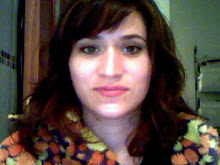lebanon,
liveable cities,
urban history,
urbanization fears
10:37 PM
Having been to Beirut several times, several things jump out from the perspective of those of us who are interested in urban issues and liveable cities. First, no parks, no trees, not even weeds growing through the cracks of the pavement. Second, a whole lot of new construction that rather than aimed at preservation seems to be following the Dubai-model, especially along the waterfront. Third, lots of beautiful, decaying but decadent houses whose window shutters seem to fluttering their eyelashes at us begging for us to restore these buildings.
This article (click on this link for the full text or read below for the first lines that I have copied) by Natalia Antelava poignantly sums up the street-level experience of citizens who have seen their city transformed in the post-war era beyond recognition, and the concerned inner circle of urban activists who are trying to mainstream preservation and cities for the public good into the political discourse. The image I am including is of a destroyed egg-shape movie theater from Beirut's bygone urban eras that has always caught my attention. It lays fallow in a plot that is so close to the new glitzy downtown area around Place d'Etoiles, so close to Hariri's tomb, and surrounded by a bunch of construction area that seems perpetually incomplete.

"Beirut is an ugly city."
This statement would infuriate plenty of proud residents of the Lebanese capital, but veteran architect Assem Salaam stands by his words.
He points to the evidence: a jungle of grey concrete that towers over his garden, hiding what used to be a spectacular sea view.
 |  Of course all cities change, but change does not have to be so aggressive and so inhuman Of course all cities change, but change does not have to be so aggressive and so inhuman  |
It is not the loss of the sea view that Mr Salam mourns.
And, he says, it is not the commonplace nostalgia for the old and familiar that drives his bitterness about an extraordinary pace of construction in his city.
"Of course all cities change, but change does not have to be so aggressive and so inhuman," he says.
"Take London, for example. It has changed immensely since I first visited in 1942, but I can still take the same bus route as I did then, or walk the same streets.
"Beirut, on the other hand, has changed beyond recognition," he says.





0 Responses on "BBC World: " 'Ugly Beirut' struggles to survive peace" by By Natalia Antelava"
Post a Comment